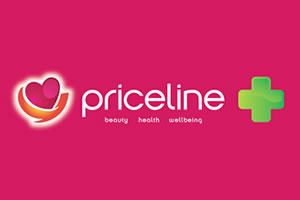How to increase your vitamin uptake
Published July 14, 2022

Between juggling family, work, exercise and trying to find time to relax, it can be challenging to fit in the recommended three daily balanced meals plus healthy snacks per day. You might find yourself grabbing a quick carb-loaded bite to get you through, or skipping meals altogether. Over time this could cause you to miss out on essential vitamins and minerals your body needs to perform at its best. Fortunately, there are quick and easy ways to increase your daily intake of these vital nutrients, even when your day is non stop.
10 top tips to boost your daily vitamin intake
- Boost your breakfast — Adding a few strawberries, blueberries or sliced bananas to your cereal or swapping out jam for nut butter on your toast doesn’t require much effort and will add much-needed vitamins, minerals and antioxidants.
- Snack on nuts and seeds — Keep a container of raw nuts and seeds at your desk or in the car for a healthy and convenient snack. Include almonds, cashews, brazil nuts, walnuts, pumpkin seeds and sunflower seeds. Try adding some dried cranberries or goji berries and you’ll have a delicious and nutritious snack. Nuts and seeds contain various nutrients including calcium, selenium, magnesium, B vitamins and good fats.
- Replace standard lettuce with darker greens — Dark leafy greens such as spinach, rocket, kale, broccoli and bok choy are nutritional powerhouses, rich in vitamins A, C, E and K, plus iron, magnesium and calcium.
- Keep carrot sticks or hard-boiled eggs in the fridge — When you’re time-poor and looking for something to snack on, carrot sticks work well with hummus or nut butter and are a source of beta‐carotene and folate. Eggs are a great protein source and are rich in B vitamins, magnesium, calcium, iron, selenium, vitamins E and A, and lutein.
- Switch to wholegrain foods — Move away from highly refined and processed white bread, white flour and white rice and instead choose their wholegrain counterparts. When grains are refined, they lose around 25% of their protein content; there is also a 25-90% reduction in critical nutrients including fibre and B vitamins Try rolled oats, buckwheat, rye, spelt, millet, brown rice and quinoa.
- Add a can of tuna or salmon to your salad — Tuna and salmon are fantastic sources of omega-3 essential fatty acids, which are necessary for heart, brain and general health. Canned salmon also contains soft edible bones that are rich in calcium.
- Order a side salad — When eating out, order a green side salad to increase your vitamins and minerals intake.
- Track your nutrients — Using an app to track your nutrients can help you track which nutrients you’re getting — and which ones you’re not — and help you choose more nutritious food options to boost your daily vitamin intake, even when you’re busy and on the run.
- Meal prepping — There are so many meal prep blogs and apps now to help you prep everything from work lunches to every meal and snack for a month! Many nutritionists also have meal prep advice online to help you get organised and keep healthy meals and snacks on hand. So try prepping some healthy snacks or lunches in advance to reduce the temptation to grab an unhealthy option.
- Fuel your body with a multivitamin — Multivitamins can help top up your daily intake of vitamins and minerals that you may not be getting from your diet alone and help your body function optimally.
Increasing your intake of vitamins and minerals may take a little planning, but the rewards far outweigh the effort. Increasing your vegetables, choosing natural, unprocessed foods and adding an extra hit of good fats with fish every week will give your body the nutrient boost it needs to get through your busy day.
MAT-AU-2201753
Learn about which Nature's Own product may be appropriate for you.
SEE THE PRODUCTS HERE







